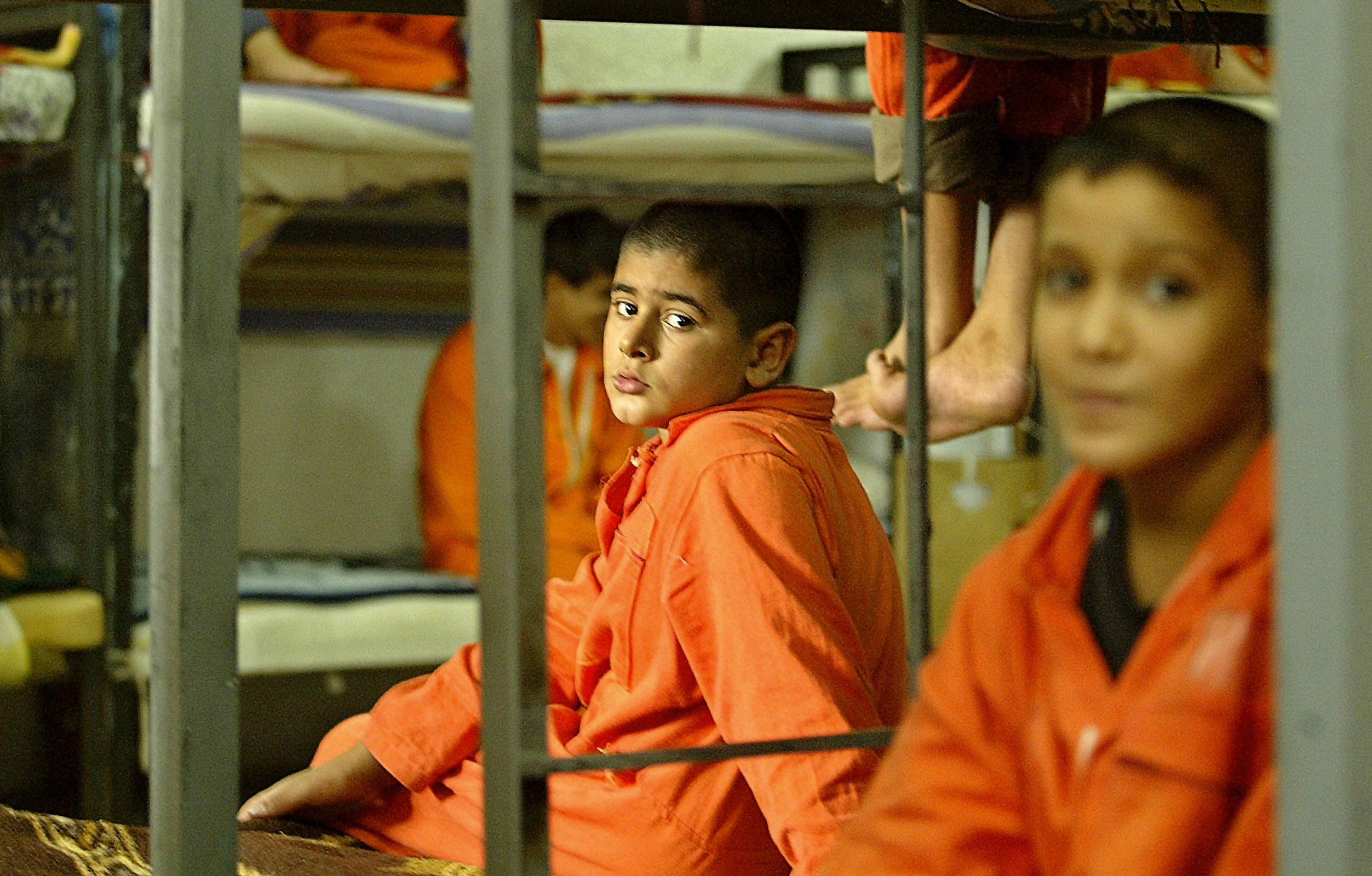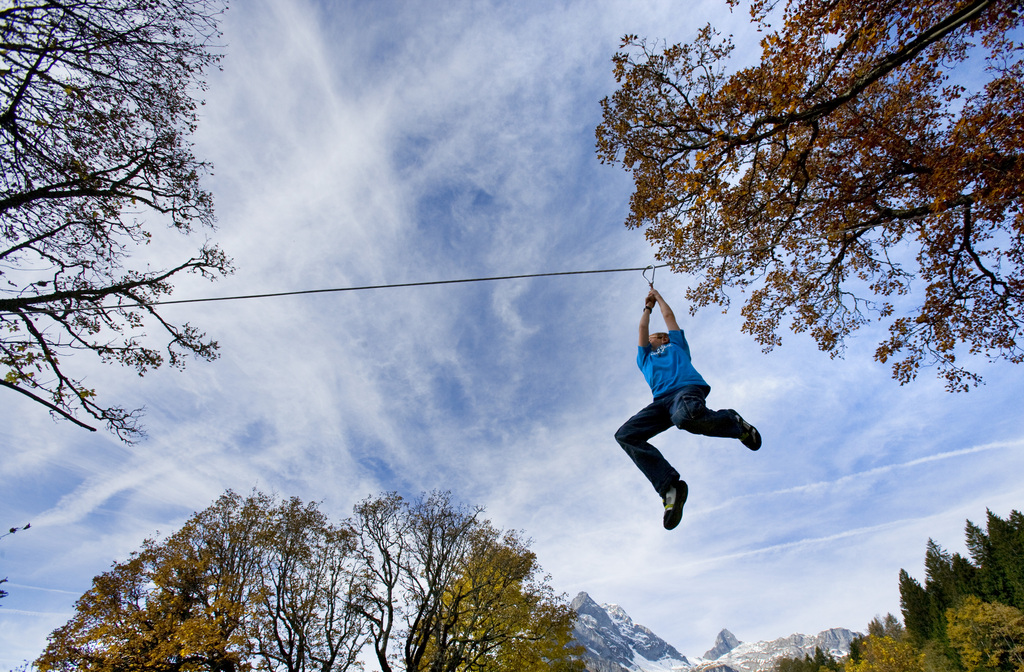Proper justice instead of empty words

The United Nations Convention on the Rights of the Child isn’t just window dressing, but designed to ensure that children are not to be treated like chattels. Switzerland is helping reach that goal with a unique institute.
“In Senegal, more than half of the population is under 18. I take a lot of interest in their rights and I need legal tools so I can work with them,” explains Abdul Aziz Danfakha.
Danfakha, a deputy prosecutor in the Dakar regional court, is following a juvenile justice training programme in the Senegalese capital, organised by the International Institute for the Rights of the Child.
The institute, based in Sion, canton Valais, has set up programmes in several countries, but has a special mandate from the Swiss foreign ministry in Senegal. The course is aimed at prosecutors, magistrates, prison officers, lawyers and child psychologists.
“It’s not about preaching, but rather about exchanging ideas,” explains course leader Michel Lachat, a Swiss juvenile court judge. “We present and explain our respective justice systems, and we reflect on how international law can be applied in Senegal.”
The courts in Senegal’s 13 administrative regions designate a youth judge and a youth prosecutor, but the only fulltime magistrate for juveniles works in Dakar. Danfakha says there is a need to adopt the appropriate behaviour during arrest, questioning and detention.
“It not competence that’s at issue, it’s a question of resources allocated in the judicial and policing systems,” agrees Lachat. “I visited a police station in which just two people were designated for dealing with minors. So you have to train police officers.”
“Minors are often badly treated in police stations, even in Switzerland, so our work consists of training and informing the people who are involved all along the chain, either in contact with the victims or with the perpetrators.”
The training offered by the institute focuses notably on prevention, reparation, and prioritising penalties other than prison.
The first module was to take place this month in Dakar, to be followed by three others throughout 2013. The final module will be taught in Sion at the beginning of 2014 – the idea being that the first people to receive the training will themselves train others later on.
The Sion institute
The Sion institute was founded in 1995 by Jean Zermatten, a former youth judge and the current chairman of the UN Committee on the Rights of the Child. Its goal is to spread awareness of the Convention on the Rights of the Child, adopted by the UN General Assembly in 1989. Only three countries have not signed it – South Sudan, Somalia and the United States.
Zermatten believes the convention is a vital tool. “It’s a way of encouraging states to take responsibility,” he says. “We’ve spent enough time passing legislation, now we must make sure that laws are applied properly.”
Despite this, the rights of children are not an integral part of mainstream university curricula, points out Zermatten. “There are certainly courses on criminality, migration or sexual abuse, but they are integrated into more general courses on the family, law or psychology, for example,” he adds.
The Sion institute is one of few in the world to offer a master’s certificate in advanced studies in children’s rights. Similar courses have been set up in Serbia and South Korea by Zermatten’s colleagues on the UN committee.
The institute also collaborates with local Unicef organisations, as well as welcoming delegations from other countries and cantons for courses.
Zermatten along with his co-founder Lachat have drawn on their own international professional networks to draw attention to their institute’s work. This visibility has been one of the factors in the success of the international seminar organised every autumn for the past 17 years.
“Our seminar hasn’t changed, but it is an opportunity both to train and to bring together like-minded professionals,” reckons Paola Riva Gapany, the institute’s deputy director.
“It’s also a chance to spread the message to the widest possible audience that a child has a right to express themself and to be heard on any subject concerning them. That they are not the property of adults nor of states, but citizens in their own right.”
The biggest difficulty authorities face, she says, is to respond to young offenders.
“Even today, when a child poses a problem and the state hasn’t got the means to deal with them, or the will to develop solutions, it puts the child in prison,” she told swissinfo.ch. “But when a child has made a mistake they shouldn’t be punished like an adult. Whatever has gone wrong in their education needs to be set right.”
Is that an impossible task? Riva Gapany doesn’t deny the difficulty, but says the world has made considerable progress if children’s education, work or health are taken into account.
“Throughout history, plenty of sad stories have been associated with childhood. But not only sad stories,” she points out. “This is a very emotional history, because we were all children once, and we all know what that feeling is like.”
The UN’s General Assembly brought in the Universal Children’s Day in 1954. It’s held every year on November 20, the anniversary of the Declaration of the Rights of the Child in 1959.
In Switzerland the Universal Children’s Day is putting the spotlight on children who suffer as a consequence of their parents’ addictions.
Switzerland took ten years to ratify the Convention on the Rights of the Child, approved by the UN in 1989.
According to Paola Riva Gapany, deputy director of the International Institute for the Rights of the Child, Switzerland does well when it comes to child education, fighting paedophillia, especially on the internet, and battling genital mutilation.
But Switzerland could do better when it comes to violence – notably self-harm, because Switzerland has one of the highest rates of suicide in Europe. Migration is another sore point, as laws become ever more restrictive.
Federalism acts as a sort of brake on child rights. Child protection is a task that is devolved to the cantons, explains Paola Riva Gapany.
They take action, or don’t, and this can lead to differences between cantons, even discrimination.
(Adapted from French by Victoria Morgan)

In compliance with the JTI standards
More: SWI swissinfo.ch certified by the Journalism Trust Initiative










You can find an overview of ongoing debates with our journalists here . Please join us!
If you want to start a conversation about a topic raised in this article or want to report factual errors, email us at english@swissinfo.ch.